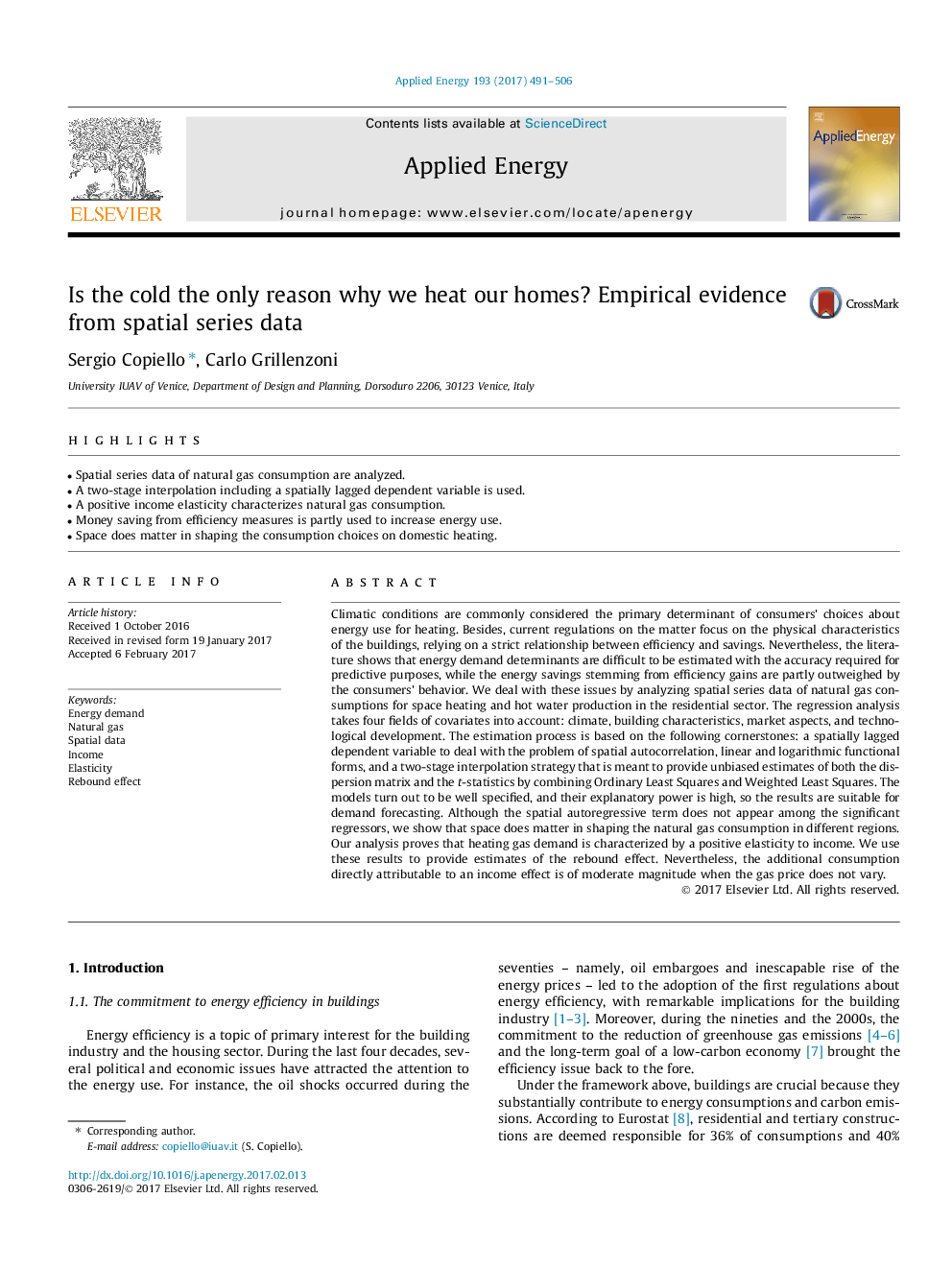ترجمه فارسی عنوان مقاله
آیا سرد تنها دلیل اینکه ما خانه هایمان را گرم می کنیم؟ شواهد تجربی از داده های سری فضایی
عنوان انگلیسی
Is the cold the only reason why we heat our homes? Empirical evidence from spatial series data
| کد مقاله | سال انتشار | تعداد صفحات مقاله انگلیسی |
|---|---|---|
| 136289 | 2017 | 16 صفحه PDF |
منبع

Publisher : Elsevier - Science Direct (الزویر - ساینس دایرکت)
Journal : Applied Energy, Volume 193, 1 May 2017, Pages 491-506
ترجمه کلمات کلیدی
تقاضای انرژی، گاز طبیعی، داده های فضایی، درآمد، قابلیت ارتجاعی، تأثیر بازتاب،
کلمات کلیدی انگلیسی
Energy demand; Natural gas; Spatial data; Income; Elasticity; Rebound effect;

